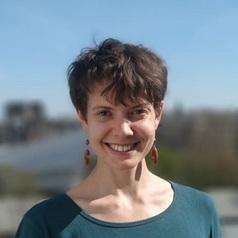
Marion Leroutier
Postdoc Fellow, Institute for Fiscal Studies
I’m an applied environmental economist focusing on two major environmental issues, ambient air pollution and climate change. I'm working on the effectivenes of climate policy, in particular in the energy and transport sectors, the societal costs of air pollution, and the determinants of support to green policies.
Less ![]()
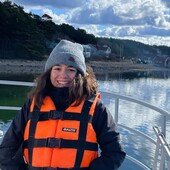
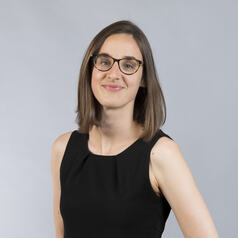
Marion Rouault
Chargée de recherche CNRS en neurosciences cognitives, Institut du Cerveau et de la Moelle épinière (ICM)
Dr. Marion Rouault est chargée de recherches au Centre National de la Recherche Scientifique. Ses recherches en neurosciences cognitives portent sur les mécanismes psychologiques et cérébraux de construction de la confiance en soi et sont conduites à l’Institut du Cerveau à Paris.
Less ![]()
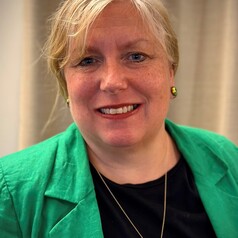
Marion Sturges
Academic Professional Advisor and Lecturer in Education, Western Sydney University
Dr Marion Sturges is an experienced educator of over 33 years. She currently works at Western Sydney University leading a team to prepare preservice educators to become classroom teachers. Marion has led and participated in numerous research projects working collaboratively with other researchers and educators. The focus of these projects is working with marginalised members of the community, including children, people with disability, and women to ensure their rights are met and exploring how the place can support or inhibit rights.
Less ![]()
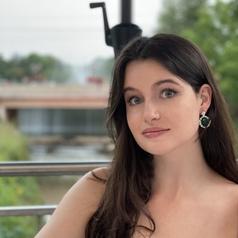
Marion Tempest Grant
PhD Candidate, Communication & Culture, York University, Canada
Marion Tempest Grant is a Ph.D. Candidate in the Communications and Culture program at York University in Toronto, Canada. She is a Research Assistant on the Bearing Witness Project.
Less ![]()
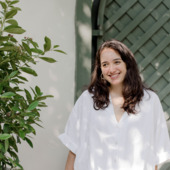

Marissa Nivison
Post-Doctoral Researcher, Department of Psychology, University of Calgary
Marissa is a Post Doctoral researcher at the University of Calgary where she studies parent-child relationships.
Less ![]()
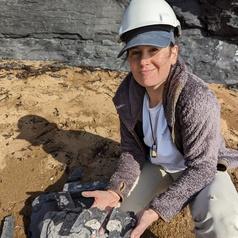
Marissa J Betts
Senior Research Fellow in Earth Science, University of New England
Marissa J Betts is a DECRA-funded Senior Research Fellow in Earth Science at the University of New England in Armidale, Australia. She specialises in sedimentary geology and invertebrate palaeontology, with a focus on some of the earliest complex skeletons in the fossil record. Her research primarily investigates the early Cambrian Period (approximately 538–509 million years ago). Marissa works both in the ‘nuts and bolts’ of palaeontology—identifying, describing, and interpreting fossils—and their broader applications to geological questions. Her research aids in dating and correlating rock formations globally, interpreting past environments, reconstructing ancient continental plates, and refining the geological timescale. She is currently the Secretary of the International Subcommission on Cambrian Stratigraphy. Marissa has been recognised as an STA Superstar of STEM, NSW Young Tall Poppy, A.H. Voisey Medalist, and Walter Howchin Medalist. She also directed the award-winning film Rola[Stone] about the inseparable connection between geology, landscape and culture on Anaiwan Country in NSW.
Less ![]()
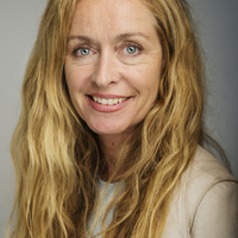
Marit Haldar
Professor of Sociology, Oslo and Akershus University College of Applied Sciences
I am a professor of sociology at the University College of Oslo and Akershus in Norway. My main interests are gender studies, social politics and childhood and family Research.
My work includes analysing gender, the welfare state, vulnerable subjects and lately also differences in healthcare treatment to look at social inequality. I study standards and the general cultural understandings that produce what is understood as different, or deviant.
II have also published several international articles about research methods. Within qualitative methods I've discovered untapped data sources and developed new procedures.
Less ![]()
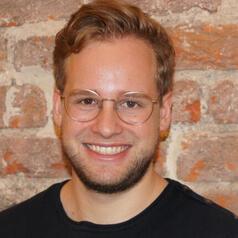
Marius Boeltzig
PhD Candidate in Psychology, University of Münster
Memories not only contain information about the past. Instead, they also help us predict the future and generate expectations about what will happen next in a situation. When a memory is recalled to make predictions, it can be altered, for example if the prediction was wrong (prediction error; PE). We are interested in the extent to which and how PEs can alter memories, and the properties of episodic PEs that trigger such changes.
Building on a previous project in which the type of PEs was (qualitatively) manipulated, we will manipulate episodic PEs quantitatively. In addition, we will use social interactions as naturalistic, personally meaningful stimuli. We will use a multi-stage paradigm in which subjects' brain activity is measured both during encoding and during retrieval of episodes in MRI.
Less ![]()
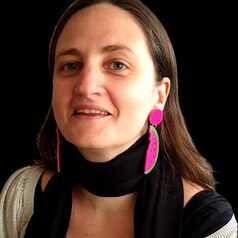
Mariya Ivancheva
Senior Lecturer, Strathclyde Institute of Education, University of Strathclyde
Mariya Ivancheva (University of Strathclyde) is an anthropologist and sociologist of higher education and labour whose work focuses on the casualisation and digitalisation of academic labour, the re/production of intersectional inequalities at universities and high-skilled labour markets, and the role of academics and students in processes of social change especially in transitions to/from socialism. She is the author of The Alternative University: Lessons from Bolivarian Venezuela (Stanford UP 2023). @mivanche
Less ![]()
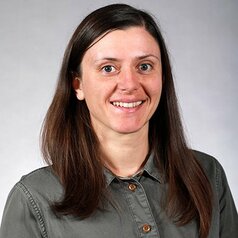
Mariya Zheleva
Assistant Professor of Computer Science, University at Albany, State University of New York
Dr. Zheleva’s research focus is on wireless networks for infrastructure-challenged regions, characterized with low-bandwidth Internet gateways, lack of reliable electricity and sparse populations. In order to connect such regions, she has designed distributed cellular network systems to provide voice, text messaging and data connectivity. She is also working on Dynamic Spectrum Access systems to for long-distance high-bandwidth connectivity.
In the past, Dr. Zheleva has worked on other projects related to wireless networking including monitoring, medium access control for 60 GHz networks and smart phones.
Less ![]()

Marjan Biria
Research Fellow of Mental Health Neuroscience, UCL
I have a Bachelor's degree in Clinical Psychology and a Master's degree in Neuroscience. My master's project was about predicting schizophrenia development in patients with a high genetic predisposition using high-density EEG with 256 electrodes. I also have a background in Computer Science.
During my PhD in Cognitive Neuroscience from the University of Cambridge, under the supervision of Professor Trevor Robbins and with Professor Barbara Sahakian as my advisor, I studied compulsive behaviour in patients with OCD using clinical scales and a computer task to measure habitual versus goal-directed behaviour. We used 7T proton Magnetic Resonance Spectroscopy (1H-MRS) to measure neurochemical imbalance in brain regions important in the pathophysiology of OCD.
After designing and developing a new computer paradigm to measure checking behaviour (one of the most common symptoms of OCD) in a laboratory setting, I also studied the relationship between brain metabolites and checking behaviour in patients with OCD using 7T 1H-MRS.
Additionally, I also studies OCD symptoms of clozapine-treated patients with schizophrenia, showing OCD symptoms as a consequence of their treatment, under clinical supervision of Dr Emilio Fernandez-Egea. We used clinical scales and novel computer tasks to characterise clinical symptoms in patients with OCD, schizo-OCS, pure schizophrenia compared to each other and to healthy controls.
At the moment I am a Post-doctoral Research Fellow at UCL, working with Professor Argyris Stringers and Dr Georgina Krebs. I am designing a new computer task that allows us to capture the relevant factors underlying improvements in Cognitive Behavioural Therapy, and model them using mathematical models.
Less ![]()
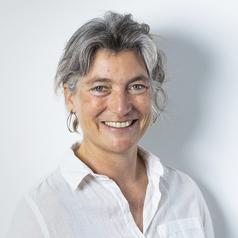
Marjolaine Krug
Senior Scientific Advisor, University of Cape Town
Marjolaine Krug holds a PhD in physical oceanography from the University of Cape Town. Her research has focused on the dynamics and variability of the Agulhas current as well as interactions between the Agulhas current and the coastal and shelf regions. She has worked extensively with satellite remote sensing data and pioneered the deployment of underwater gliders in the Agulhas current. Krug is currently employed as a senior scientific advisor within the South African Department of Forestry, Fisheries and the Environment, where she manages the national Oceans and Coastal Information Management System.
Less ![]()

Marjorie Sarbaugh-Thompson
Professor of Political Science, Wayne State University
Marjorie Sarbaugh-Thompson is a professor of Political Science at Wayne State University. Her research focuses on state legislative term limits and legislative oversight of the executive branch. She was the principal investigator on a major study of term limits in Michigan that involved interviews with 460 state legislators over 10 years as Michigan implemented a state term limits ballot initiative. She participated in two studies of legislative oversight of the executive branch in collaboration with the Levin Center at Wayne State University’s Law School, a 50 state study of oversight and a study of contract monitoring in selected states. She also serves as the Academic Director of the State Oversight Academy at the Levin Center for Oversight and Democracy.
Less ![]()
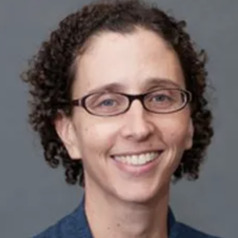
Marjorie N. Feld
Professor of History and Society, Babson College
Marjorie N. Feld's teaching and research interests include U.S. social, labor, and gender history, along with the history of global human rights movements, food justice, and sustainability. She is a member of the Academic Advisory Councils of the Jewish Women's Archive and Jewish Voice for Peace.
Her first book, Lillian Wald: A Biography, published in 2008 by University of North Carolina Press, won the Saul Viener Book Prize of the American Jewish Historical Society, an award presented biannually to an "outstanding book in American Jewish History." At Babson, she received a Nan Langowitz Women Who Make a Difference award in 2009, the Martin Luther King Leadership Award in 2014, and the Babson Pride Award in 2017. From 2011-2015, she was the faculty director for Babson's Center for Women's Leadership. Her second book, Nations Divided: American Jews and the Struggle Over Apartheid, was published by Palgrave MacMillan in July 2014. In 2019-2020, Feld was a Goldstein-Goren Fellow in the Skirball Department of Hebrew and Judaic Studies at New York University. Her third book has just been published by New York University Press, titled The Threshold of Dissent: A History of American Jewish Critics of Zionism.
Less ![]()
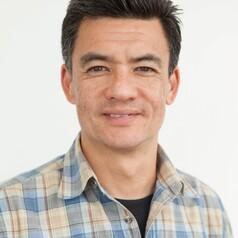
Mark Andrew
Senior Lecturer in Housing Economics, City, University of London
Dr. Mark Andrew joined the real estate group at Bayes (formerly Cass) in January 2007. He was previously a Lecturer in Economics at the University of Reading. Mark's research interests are in the fields of housing economics, micro-econometrics and panel data analysis. Dr. Andrew has published in journals such as Environment and Planning A, Real Estate Economics, Regional Science & Urban Economics, Housing Economics and the Scottish Journal of Political Economy. He has also been involved in a number of government funded projects for the DCLG and Office of the Deputy Prime Minister as well as a number of ESRC funded projects. He is currently serving as a member of the Research Steering Group for the Investment Property Forum (IPF).
Less ![]()

Mark Bailey
Faculty Member and Chair, Cyber Intelligence and Data Science, National Intelligence University
Dr. Mark Bailey writes about the intersection between artificial intelligence, complexity, and national security. He is a faculty member at the National Intelligence University, where he is the Department Chair for Cyber Intelligence and Data Science, as well as the Co-Director of the Data Science Intelligence Center. His work has appeared in publications such as the journal Futures, Nautilus, and Homeland Security Today. Previously, he worked as a data scientist on several AI programs in the U.S. Department of Defense and the Intelligence Community. He is also an Officer in the U.S. Army Reserve. In his spare time, he does ceramics, is a beekeeper, and endeavors to turn his yard into a vegetable garden.
Less ![]()
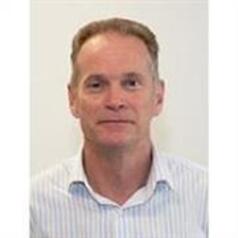
Mark Barrow
Dean of the Faculty of Education and Social Work, University of Auckland, Waipapa Taumata Rau
Professor Mark Barrow is the Dean of the Faculty of Education and Social Work at Waipapa Taumata Rau, the University of Auckland. He has worked as a secondary school science teacher and as an academic developer and academic director within the NZ polytechnic sector. Mark joined the University in 2007 in the role of Associate Dean Academic in the Faculty of Medical and Health Sciences, a role he held for 11 years. Mark’s research interest is the theory and practice of higher education.
Less ![]()
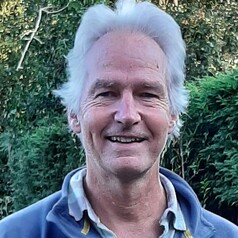
Mark Beaumont
Professor of Statistics, University of Bristol
I am a biologist by background, and I am interested in general problems of statistical inference in population genetics, evolutionary biology, and conservation genetics. Most of my work has involved Monte Carlo statistical methods. Particular areas of application that interest me include: detecting evidence of selection in the genome; modelling demographic history of populations; inference in structured populations; modelling temporally sampled genetic data; inference in agent-based models.
Less ![]()
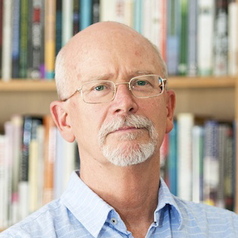
Mark Beeson
Mark Beeson is Professor of International Politics at the University of Western Australia. Before joining UWA at the beginning of 2015, he was Professor of International Relations at Murdoch University. Previously he taught at the universities of Griffith, Queensland, York (UK) and Birmingham, where he was also head of department. He is co-editor of Contemporary Politics, and the founding editor of Critical Studies of the Asia Pacific (Palgrave)
Less ![]()
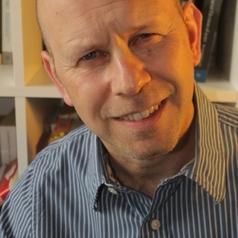
Mark Bennister
Associate Professor, University of Lincoln
Mark Bennister joined the University of Lincoln in 2018. He is Director, Lincoln Policy Hub and Director of the Lincoln Parliamentary Research Centre (ParliLinc). He was Reader in Politics at Canterbury Christ Church University from 2010 until 2018. Mark was a parliamentary academic fellow 2016-19. He previously held positions at UCL and the University of Sussex. He gained his DPhil from Sussex in 2009. Mark is a an Associate Research Fellow at the Crick Centre, University of Sheffield and was a Visiting Lecturer, Tufts University. Mark worked as an Executive Officer at the Australian High Commission in London from 1998 until 2004. He also worked as a parliamentary researcher at the House of Commons and European Parliament from 1993 until 1997.
Mark is an expert in comparative prime ministerial leadership. He published 'Prime Ministers in Power: A Comparative Study of Political Leadership in Britain and Australia' in March 2012 and 'The Leadership Capital Index' in 2017. Mark gained his doctorate from the University of Sussex (2004-2008), where he was awarded a 1+3 ESRC studentship. Mark has an MSc in Social Research (Sussex 2005), MA in Contemporary European Studies (Loughborough 1993), and BA Hons in Social Sciences (Nottingham Trent University 1990).
Less ![]()

Mark Bloomberg
Adjunct Senior Fellow Te Kura Ngahere – New Zealand School of Forestry, University of Canterbury
Less ![]()
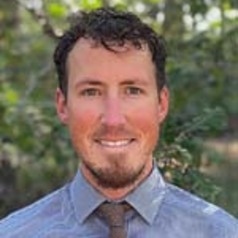
Mark Boespflug
Assistant Professor of Philosophy, Fort Lewis College
Dr. Boespflug joined the department in 2021 as Visiting Assistant Professor of Philosophy. His research concerns human rationality, especially as it pertains to our scientific and religious beliefs, and the voluntary control we exert over our beliefs. Articles of his have been published in Synthese, British Journal for the History of Philosophy, Archiv für Geschichte der Philosophie, Res Philosophica, The Lockean Mind, The Journal of Scottish Philosophy and Religious Studies. He has presented his work at the British Society for the Philosophy of Science, the Princeton Project in Philosophy and Religion, the Helsinki Collegium for Advanced Studies, the Iranian Institute of Philosophy, the Rocky Mountain Ethics Congress among other venues. He has served as reviewer for the Australasian Journal of Philosophy, Philosophical Studies, Synthese, Journal of Modern Philosophy, Ethical Theory and Moral Practice, British Journal for the History of Philosophy.
Prior to coming to FLC, Dr. Boespflug was a Postdoctoral Lecturer associated with the Baier Chair in Early Modern Philosophy at the University of Otago in New Zealand. He completed his Ph.D. at the University of Colorado at Boulder under the supervision of Robert Pasnau.
Less ![]()

Mark Booth
Senior Lecturer in Parasite Epidemiology, School of Natural and Environmental Sciences, Newcastle University
I graduated from Imperial College with a BSc Hons in Zoology and stayed on to complete a PhD in Biology focusing on the epidemiology of parasitic infections in developing countries, mainly in Africa. My interest in parasitology continued at the Swiss Tropical and Public Health Institute, Cambridge University and Durham University, taking an interdisciplinary approach that combines information from genetics, ecology, ethnography and immunology to yield novel inferences. I currently focus my research on climate change and the so-called Neglected Tropical Diseases.
Less ![]()
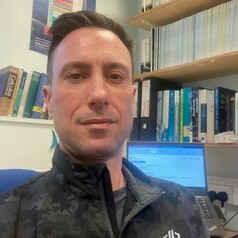
Mark Briffa
Professor of Animal Behaviour, University of Plymouth
Mark Briffa is Professor of Animal Behaviour at the University of Plymouth, U.K. He has studied the behaviour of hermit crabs since 1995. He gained a PhD on this topic at Queen’s University Belfast and conducted post-doctoral research there, before moving to Plymouth in 2004 for a lectureship in marine biology. As well as studying the effects of human impacts on behaviour he is also interested in animal contests and animal personality, which he studies in hermit crabs, sea anemones and other marine animals.
Less ![]()
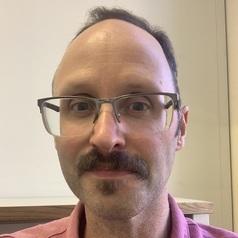
Mark C. Pachucki
Dr. Pachucki is a sociologist who investigates phenomena at the intersection of culture, social determinants of health, and social network dynamics. While it is commonly accepted that culture and social context reciprocally shape our health, an expanded understanding of how the structure and meanings of relationships can affect individuals' health behaviors is aided by perspectives from computational social science. If we can better understand how individuals are connected during and across different stages of their life, we gain insight into changes in health behaviors and social status, as well as disparities in these outcomes at the interpersonal and population level. He was trained under an interdisciplinary social science model that prioritizes a “right to health” and that sees many of the cumulative disadvantages that emerge from intersecting group-based differences as unjust and avoidable.
Less ![]()
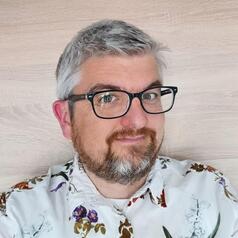
Mark Chapman
Associate Professor, Ecology and Evolutionary Biology, University of Southampton
Dr Mark Chapman is an Associate Professor in Ecology and Evolutionary Biology and his research focuses on working out what genes do.
He works with a range of plants (and some animals) and carries out detailed genetic and genomic investigations comparing populations or species.
His research identifies the genes that are important for adaptation, speciation and domestication; therefore it is important for the fields of evolutionary biology, genomics and mitigating climate change.
Less ![]()
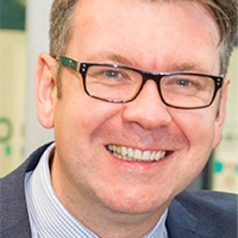
Mark Charlton
Net Zero Research Theme Director, De Montfort University
Dr Mark Charlton currently holds the role of Net Zero and Climate Action Research Theme Director at De Montfort University. Mark is also Associate Director of Sustainable Development Goal Impact and also teaches policy in the department of Politics. He leads the United Nations Academic Impact Global hub for Sustainable Development Goal 16, based at DMU. Mark’s current research looks at efforts to tackle climate change through political participation in marginalised communities. His current research is working with amateur football clubs to help them achieve Net Zero. Mark also leads a project focussed on refugee advocacy.
Less ![]()
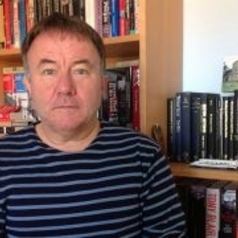
Mark Clapson
I gained a BA (Hons) in History from the University of Lancaster in 1982, and an MA in Modern Social History at Lancaster in 1983. I was awarded my doctorate at the University of Warwick in 1989 on the history of betting and gambling in England from 1823-1961.
I have previously worked at the Open University and the University of Bedfordshire. Following my early research on the history of betting and gambling in Britain, I increasingly focused on suburbanization and new town development, and currently work on air raids, the reconstruction of London since the Blitz, and sectarianism and suburban housing in Belfast. So 'conflict and the city' sums up my present research neatly enough.
I have widespread academic impact. My research has been translated into Dutch, French, Italian and Japanese, and I have given conference and seminar papers in Australia, Britain, Canada, Belgium, Brazil, Finland, France, Italy, Japan, Portugal, Spain and the USA. I have over 450 citations on Google Scholar. I have also been widely interviewed by the media, notably for BBC Radio 4, BBC Three Counties Radio, and the Economist.
Serving on the AHRC Peer Review College, the Steering Committee of History UK (HE), the Editorial Board of Planning Perspectives, the Editorial Board of the University of Westminster Press, and the Editorial Board of the Journal of Administrative Sciences (Yönetim Bilimleri Dergisi (Turkey), I am actively engaged in national and international networks of academic historians. I am one of the international participants in the University of Antwerp's Urban Studies Institute network “Urban Agency: The Historical Fabrication of the City as an object of study”, a five-year programme of workshops that began in January, 2016. In December 2015 I was invited onto the 'Panel of experts' of the Romualdo del Bianco Foundation, Florence.
I have refereed articles for many historical journals, and also town planning journals. I am a peer reviewer for the AHRC, the Leverhulme Trust and FWO (Belgium).
Less ![]()

Mark Constantine IV
Researcher, UNSW Sydney
I am an environmental geographer and paleoecologist specializing in past wildfires (bushfires) and environmental change. I recieved my PhD from the University of New South Wales and my MA from Seoul National University, South Korea. Prior to starting my research career I was a teacher, a garbageman, a tour bus driver and a full-time cyclist. In my spare time I like to teach, search for treasures in north shore council cleanups, ride my bike and take walks with my wife and son.
Less ![]()
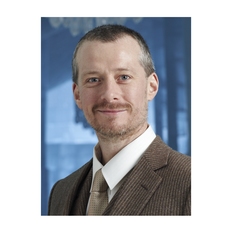
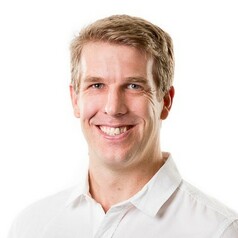
Mark Davies
Laboratory Head, Doherty Institute, The University of Melbourne
Dr Mark Davies completed his PhD at the Queensland Institute of Medical Research in 2007, before undertaking postdoctoral studies at the University of York in the UK. In 2009, he was awarded an NHMRC postdoctoral training fellowship within the laboratory of Professor Gordon Dougan at the Wellcome Trust Sanger Institute, UK and Prof Mark Walker the University of Queensland. In late 2015, he was appointed as the Inaugural Doherty – Sanger Fellow within the Department of Microbiology and Immunology. His principle research interests are in the application of genome sequencing approaches to understanding emergence and evolution of key bacterial pathogens including Streptococcus pyogenes.
Less ![]()
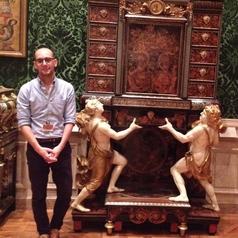
Mark De Vitis
Lecturer in Art History , University of Sydney
Mark De Vitis joined the Art History Department at the University of Sydney in 2015. He specialises in the study of early modern visual culture, and the cultures of dress and dressing, both past and present. In support of his doctoral research he was the recipient of a residency at the Cité internationale des Arts, Paris through the Power Institute, and has also held a research fellowship at the Getty Research Institute in Los Angeles. He has most recently been awarded the 2016-2017 Charles Montgomery Gray fellowship at the Newberry in Chicago.
Less ![]()
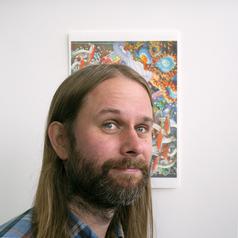
Mark Dennis
Senior Lecturer in Fine Art, Nottingham Trent University
I am an artist, researcher and lecturer in Fine Art at Nottingham Trent University. I have researched various aspects of late 20th Century British Art, notably the origins of Conceptual Art.
Less ![]()
- Market Data























